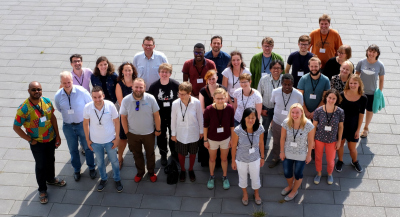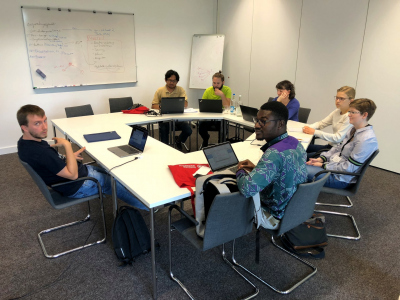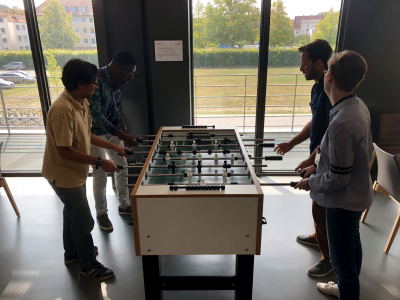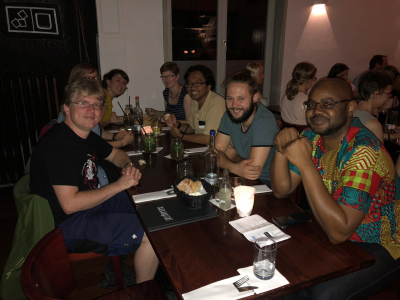- Graduate School GLOMAR
- PhD student reports
- Other activities
- Mirco Wölfelschneider
Mirco Wölfelschneider
Report of GLOMAR PhD student Mirco Wölfelschneider about his participation in the GFBio - de.NBI Summer School on "Riding the Data Life Cycle" in Braunschweig, Germany from 3 to 7 September 2018
Data management is a topic that has been discussed for decades in the whole scientific community. However, the willingness of scientists is rather moderate in terms of actively sharing data their research data with colleagues across workgroups, institutions, and countries. In quite a number of cases poor data curation also plays an important role; Scientists might be willing to share data, but the data formats of the raw data are simply not accessible anymore, or no-one knows anymore what happened to the USB stick, the data are stored on… Due to this a lot of valuable research is lost and new money has to be utilised in order to gain the same data again. To prevent such stories from happening funding agencies, one example is the German Research Foundation (DFG), started to require detailed data management plans (DMPs) throughout the application processes for new funding. The GFBio - de.NBI Summer School “Riding the Data Life Cycle”, training mainly young scientists in how to handle these issues around proper data management, was held at the Braunschweig Integrated Centre of Systems Biology (BRICS) in Braunschweig, Germany, from the 3rd until the 7th of September 2018.
I participated in the event as I clearly see the importance of proper data management in the future of science. The 5 days lasting course program included talks from high ranked members of numerous databanks and organisations working on the improvement of the data management situation in science. BRENDA, Enzymestructures, SILVA, PANGAEA, BacDive, e!DAL/PGP, SABIO-RK&FAIRDOM, GFBio to name some of them. The talks covered a wide range of tropics from the FAIR data concept (Findable - Accessible - Interoperable - Reusable), over the need and history of data management, to recent developments. In the complementary hands-on sessions and discussions all participants could bring their own questions and problems to be discussed with experts on the field. Example DMPs were part of it as well as intense discussions on the legislative background on the jungle of copyrights. Even so I was more or less aware of the importance of this pressing issue, I learned a lot, especially about submerged and not obvious part of the iceberg we name “data management”. Only one example is: Each proposal can (and should) legitimately add 5-10% atop the calculated funding needed for a project in order to secure the data management can be done properly. This secures, that scientists like us don’t have to invest our precious time for data maintenance after a project for free, by for example outsourcing it to a reliable data bank.
The organization team also consider to offer a summer school on a similar topic in 2019 in order to reach out to more young scientist and widen the understanding on its importance for future science. Therefore, I can only recommend all young scientists at ZMT and from other institutions to keep an eye on the de.NBI website (https://www.denbi.de/)for upcoming information on course on this or on other interesting topics. At last I would like to thank my supervisors Martin Zimmer and Véronique Helfer as well as the ZMT for making it possible for me to attend this enjoyable Summer School.






